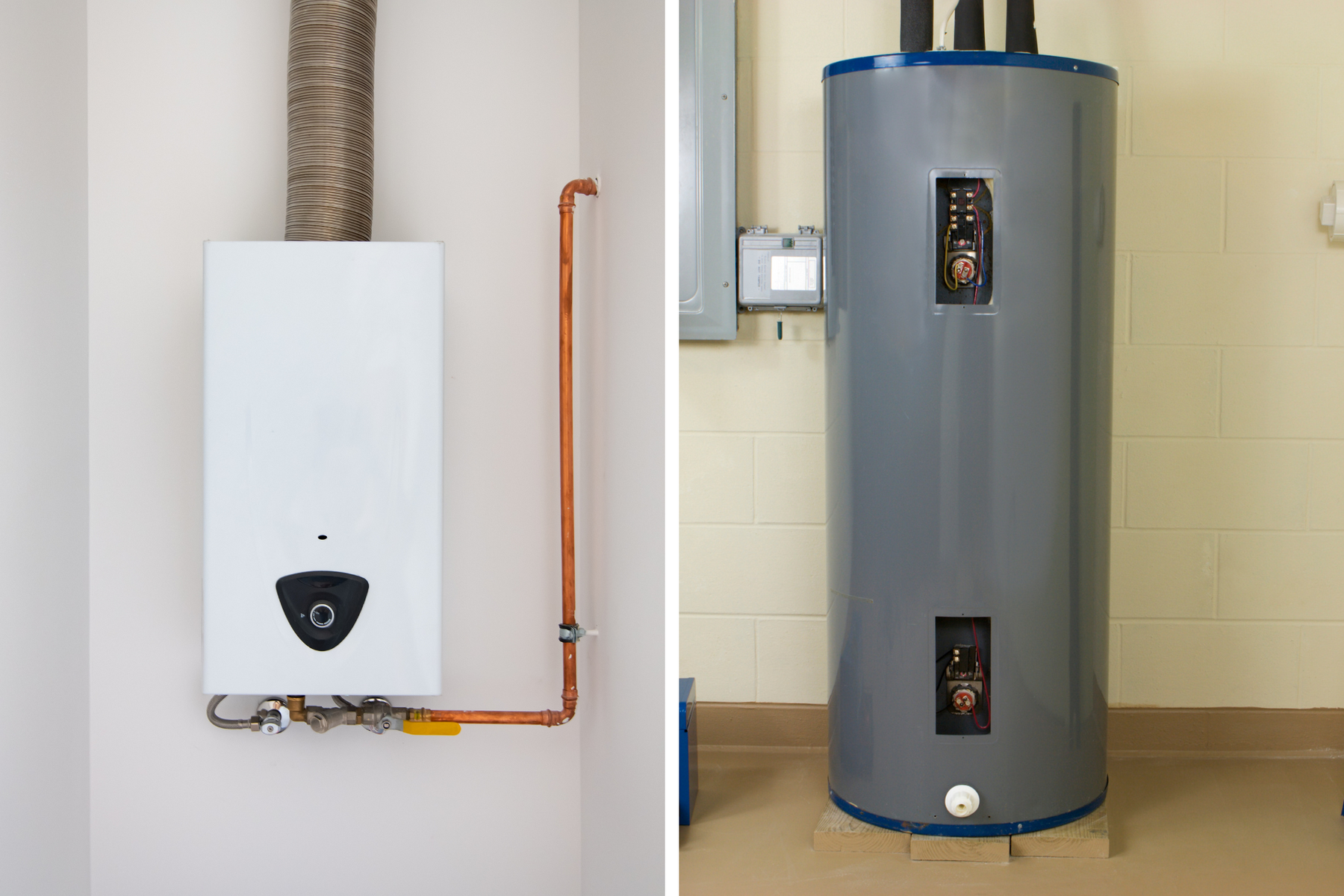
Water Heater Comparison: Tankless vs. Tank
From showers to laundry, hot water is a necessity in every home—but how much do you actually know about your water heater?
They come in two variations: tank and tankless. The choice between tankless and traditional tank water heaters is a pivotal one, influencing not only your daily comfort but also your long-term energy efficiency and cost.
Each has its pros and cons and may be better suited for certain types of homes. In this article, we’ll provide a comprehensive water heater comparison between the two to help you make a more informed choice.
Tankless vs. Tank Water Heater: How They Work
The most immediate and obvious difference between these two types of water heaters is how they work. One uses a tank, while the other doesn’t. Here’s what that means:
Tankless Water Heater
A tankless water heater—a.k.a. an on-demand water heater—uses powerful burners to heat water quickly while it runs through a heat exchanger.
When you turn on the hot water tap, the tankless water heater will start heating water immediately (on demand). It then flows through your pipes and out your faucet or showerhead at the desired temperature.
Tankless water heaters run on electricity or gas and are 8% to 14% more energy efficient than their storage tank counterparts.
Tank Water Heater
Also known as storage tank water heaters, these are most common in homes and have an average capacity of 20 to 80 gallons. This amount will depend on your household’s size as well as how much hot water you or your family uses.
They work by having cold water enter the tank, and then heating it until it reaches your desired temperature. The tank is insulated to keep the water hot. This also enables the device to go through multiple heating sequences until all of the hot water is used up.
Tank water heaters can run on everything from natural gas to electricity, propane, or even fuel oil. However, they’re always running, which means you’re paying for hot water constantly whether you need it or not.

Pros and Cons of Tankless Water Heaters
Tankless Water Heater Benefits
- High energy efficiency: Tankless water heaters heat water on demand to prevent standby heat loss. This term refers to the heat that gets lost from a tank water heating system that’s either stored or not in use.
- Longer lifespan: Tankless heaters last longer and have lower operating and energy costs than their tank counterparts.
- Space-savers: The absence of a 20+ gallon drum makes tankless water heaters much smaller and easier to place in your home.
Tankless Water Heater Disadvantages
- Higher upfront costs: It costs more to buy a tankless water heater, with prices ranging from $1,000 to $1,500 or more.
- Limited flow rate: If you or your family regularly use several hot water sources or appliances simultaneously, then your tankless water heater may not be able to accommodate all of your needs.
- Complex installation: Tankless water heater benefits, unfortunately, do not extend into the installation process—if your home was not designed for this system, you may incur additional installation costs.

Pros and Cons of Storage Tank Water Heaters
Tank Water Heater Benefits
- Lower upfront cost: The average tank unit will cost around $250, but this varies depending on its capacity, fuel source, and brand.
- Reliability: Tank water heaters are tried-and-true, often requiring less maintenance while being easier to install.
- Consistent hot water: Tank heaters ensure you always have hot water, even on busy days when the whole family needs it.
Tank Water Heater Disadvantages
- Higher utility bills: Storage tank water heaters will raise your energy expenses because they run continuously.
- Bigger space requirements: The bulkier build of these water heaters necessitates you having ample room to install them.
- Limited lifespan: Tank water heaters are susceptible to corrosion and sediment buildup, potentially shortening their lifespan.
Compare Water Heaters at NYDirect
This concludes our tankless vs. tank water heater comparison! Whether you’re completely sold on the tankless water heater benefits we outlined or are more interested in the reliability of a storage tank unit, the best place to weigh your options is at NYDirect.
We are a family-owned and operated business dedicated to providing our customers with a stress-free method of obtaining all their home improvement tools and supply needs. From tank and tankless water heaters to more specific water heater parts, you’ll find exactly what you need in our extensive catalog.
Not sure which water heater to buy? Reach out to us for advice!
Shop Popular Brands
America's Leading
Plumbing Supplies Retailer
Save big on plumbing essentials with
our wholesale prices!


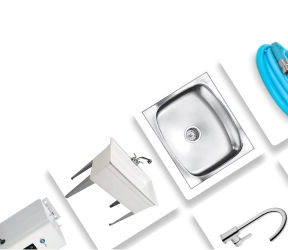
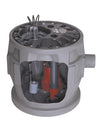

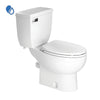

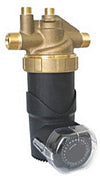

Leave a comment